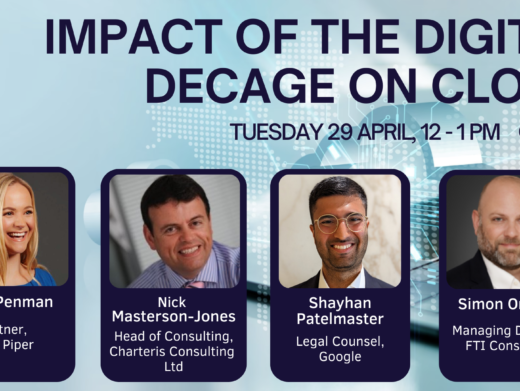Telecoms law is a European law field with limited national specialisation. The entirety of 2017 is therefore dominated by consideration of Brexit. Like many lawyers and 48.1% of voters, I consider Brexit a long slow lingering suicide, and still hope it can somehow be proved that Article 50 is the EU’s version of Hotel California: you can check out but you can never leave.
In spring I predicted to all and sundry in Brussels that Brexit would be voted for, Cameron would be gone in no time, May would take over as PM and that she would call a snap General Election in spring 2017 to get a mandate for not leaving. The first three have happened….but the fourth still looks unlikely as the Boundary Commission will not report until autumn 2018, guaranteeing a Conservative government. Theresa May left us her legacy as Home Secretary by refusing to allow freedom to information in an Orgreave policing inquiry, while passing the extraordinarily intrusive Investigatory Powers Act 2016, so soft Brexit hopes are diminished.
If Brexit does happen then an exit from the Internal Market would be disastrous for inward and outward investors. Remember that it was BT and Vodafone who first broke into other EU markets in the late 1990s, dominating Irish telecoms amongst others. Vodafone’s extraordinary hostile takeover of Mannesman caused shockwaves throughout German corporate governance. Yes, UK telecoms has become more domestically focussed with BT’s failed expansions and the recent (2015-16) mergers leaving two UK-owned mobile companies and O2 for sale. Virgin Media has announced Brexit will mean less investment into the UK.
On net neutrality, it was the Brits (through Ofcom) and Norwegians who wrote the recent BEREC Guidelines on implementation. Ofcom cannot remain a member or even observer of BEFEC/ERG if we leave the Internal Market, whatever the Ofcom CEO may hope. Can we even follow the rules we wrote?
Britannia May therefore waive the rules of Brexit, but must follow the Digital Single Market whether in, soft out or entirely David Davies. A long cold winter will wipe out the Brexit majority even if no-one had changed their minds since June 24, with $1.5trillion (about the same in € or £ these days) wiped off national wealth. From what our esteemed Foreign Secretary called a “membership fee seems rather small for all that access” in our opt-out bespoke EU membership in his unpublished February article, we may by 2018 be looking at the imminence of the worst of both worlds: no fee for no access or a high fee for limited access.
As for a Trump America with or without a Farage ambassadorship, expect a divergence from global rules for regulating telecoms and net neutrality, with a return to US exceptionalism in permitting concentration in access markets and discrimination in terms of trade for content providers, ending the open Internet after a 25 year regulated commercial experiment.
Will no-one except The Donald think of the future of our children?
{b}Professor Chris Marsden is Professor of Internet and Media Law at the University of Sussex. {/b}




